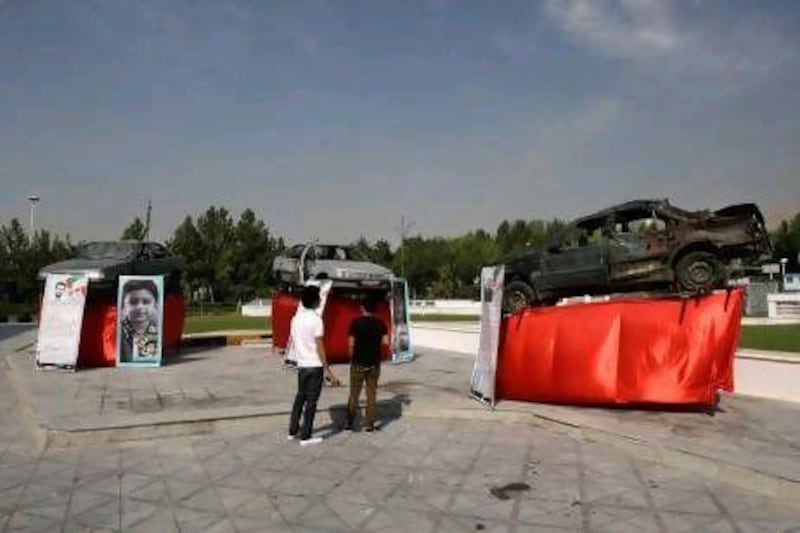TEHRAN // Iran could allow diplomats visiting Tehran for this week's Non-Aligned Movement summit to inspect a military base suspected of being used for nuclear explosive tests.
Yesterday's tentative offer was made three days after the International Atomic Energy Agency (IAEA) again requested access to the Parchin base for its inspectors at a meeting in Vienna.
When asked about the possibility of an inspection, the deputy foreign minister, Mohammad Mehdi Akhoundzadeh, said: "Such a visit is not customary in such meetings.
"However, at the discretion of authorities, Iran would be ready for such a visit."
The country is hosting the Nam summit, which ends on Friday, at a time when the West is trying to isolate the Islamic republic over suspicions it is seeking a nuclear weapons capability.
Iran says its atomic programme has only peaceful aims.
Heavy security surrounded Tehran as officials from countries taking part in the summit arrived yesterday. About 110,000 police were deployed across the country, but especially in the capital, where they were manning street corners and hundreds of vehicle inspection stops.
The security underlined the authorities' resolve to ensure no incident upstages an event they were portraying as a diplomatic coup against US-led pressure.
"God willing, a glorious holding of the summit will mark a victory for Iran in the media-political battle" against the West, said the head of Iran's powerful Revolutionary Guards, Gen Mohammad Ali Jafari.
Iran's supreme leader, Ayatollah Ali Khamenei, is expected to reinforce that message when he opens the two-day Nam summit on Thursday. Foreign ministers were expected to take over from their aides today to finesse the details of the summit, which will bring together heads of state and government from more than 30 countries, according to organisers.
The Nam, a Cold War grouping founded in 1961, has 120 members representing most of the developing world. They see themselves as independent of Washington and Moscow influence.
Although the organisation had increasingly been seen as an anachronism in the past couple of decades, Iran is seeking to revive it as a counterweight to perceived domineering by permanent UN Security Council members Britain, France, China, Russia and the US.
NAM delegations, however, were likely to have their attention focused on more pressing issues, chiefly the crisis in Syria and rebellion against the president, Bashar Al Assad.
The 17-month conflict tearing Iran's ally apart has confounded several diplomatic quests to find a solution.
Mr Al Assad, will not be going to Tehran, but will send his prime minister and foreign minister, according to Aladin Borujerdi, an Iranian legislator, who saw him in Damascus on Sunday.
* With additional reporting by Agence France-Presse





